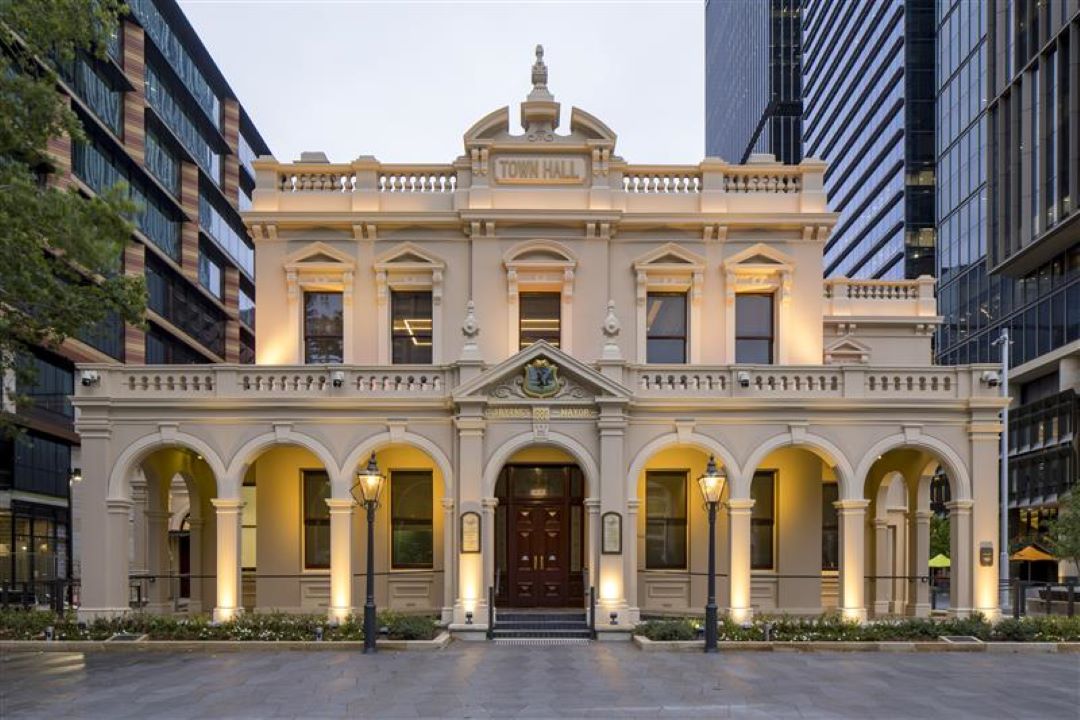Face to Face Prelodgement Meetings are unable to be held.
It is mandatory for all multi-unit developments (including townhouses, residential flat buildings and mixed use developments) to have a pre-lodgement meeting.
Pre-lodgement meetings are available if you intend to lodge a development application (DA) and want feedback on initial design concepts and technical requirements from the City of Parramatta.
Experience shows that delays in the processing of development applications often occur as a result of inadequate information being submitted or a lack of understanding about the relevant local development controls.
What we do
We will provide you with formal feedback, identify key issues and our guidance where possible.
These meetings are not intended to investigate every detail covered in the formal development assessment process or pre-empt the outcome of your DA.
Get in touch
If your proposal is identified as a city significant development, please call (02) 9806 5050 to organise your meetings.
Book your meeting
(Back to top)Online
You can lodge your request for a pre-lodgement meeting online. Just follow the prompts to lodge your application.
Meeting times
(Back to top)Tuesday afternoons
Our pre-lodgement meetings on Tuesday afternoons are for:
- dual occupancies
- single dwellings
- granny flats
Wednesday afternoons
Our pre-lodgement meetings on Wednesday afternoons are for:
- complex sites
- flooding
- heritage
- residential flat buildings
- townhouses
- mixes use developments
- significant sites
Design Advisory Panel
The Design Advisory Panel meetings occur twice a month on Thursdays.
Who attends?
(Back to top)Depending on the type of development that you propose, Council officers from relevant disciplines will attend the meeting to give you advice tailored to your proposed development.
Council’s Team Leader Development Advice will chair the meeting and supported with relevant officers such as:
- Development Engineer
- Tree and Landscape Specialist
- Environmental Health Officer
- Urban Designer
- Social Planners
- Heritage Advisor
- Other suitable officers
You should detail the key issues in your application which will allow Council officers to arrange the appropriate officer to attend your meeting.
Types of development
(Back to top)Council’s pre-lodgement service is available if your proposed development/site contains the following issues:
- the slope of the site does not enable drainage to the street
- identified flood prone site
- sites contain items of heritage value involving:
- demolition, significant alterations or additions to a heritage item or conservation area and any substantial alterations or additions to a building located within a heritage conservation area
- seeking use of conservation incentives or significant impingement on the curtilage of the item
- development proposals which involve:
- questions of permissibility or existing use rights
- non-compliances with the development control plans
- significant variations pursuant to SEPP 1 or clause 4.6 of an Environmental Planning Instrument
- all mixed use or residential apartment development which involve significant departures from the apartment design guidelines;
- in-fill, boarding houses and group homes, or ‘affordable housing’ pursuant to State Environmental Planning Policy (Affordable Rental Housing) 2009
- any proposal for 'designated development'
- any development proposal which may have an impact on threatened flora or fauna or which may have substantial impact on the integrity of an adjoining/nearby watercourse or body of water
- any industrial development which by nature of the use and/or processes and materials involved requires assessment under SEPP 33
- any proposal where the value of the development exceeds $20 million
- any proposal for a place of public assembly or public recreation facility
- any development which is considered to be of a contentious nature and/or likely to have significant social/economic impacts on the community
- any development which by virtue of its type or processes or activities carried out has the potential to have a significant impact on the environment (Water quality, air quality, flora/fauna populations etc.) or the amenity of an area (noise, dust, odour, traffic generation, visual etc.)
Fees
(Back to top)You need to pay the fees when you lodge your application.
| Proposed development | Fee (inc GST) |
|---|---|
| Dwelling house, alterations and additions to domestic dwelling and change of use for retail, commercial and industrial | $438.90 |
| Dual occupancy | $1,085.70 |
| Multi-unit dwellings, commercial (outside Parramatta CBD) and child care centre | $2,183.50 |
| Residential flat building, industrial and commercial (within Parramatta CBD) | $4,906.00 |
| Additional meetings | 25% of original fee paid |
| Pre-lodgement Design Advisory Panel meetings | From $2,335.00 |
Preparation
(Back to top)We recommend you thoroughly research your proposal and provide in depth details including:
- site plan with floor plans and elevations for all proposed buildings
- photographs of the site and surrounding area
- non-compliances/variations from Council's planning controls and development standards and any justifications for these variations
- design issues that need to be discussed
- details of any likely issues such as:
- increase in traffic
- storm water
- noise
- infrastructure needs
- environmental impact
- any other information you think we need to assess your application.
Design Advisory Panel
(Back to top)Council’s Design Advisory Panel (DAP) reviews a wide range of development applications, modifications to development applications and pre-lodgement applications.
This includes:
- residential flat buildings
- shop top housing
- mixed use developments with a residential component
- if the building is 3 or more storeys and 4 or more dwellings
- major alterations to existing buildings, and
- any other matter that Council considers would benefit from the advice of the DAP
Dedicated Panels may be formed for precincts and large projects to ensure consistency of advice and good Panel understanding of the history of the project and its applicable controls.
The role of the DAP is to provide independent, expert and impartial advice to the City of Parramatta Council on the design quality of development proposals in the Council local government area.
The DAP is an advisory panel only and does not have a decision-making function.
The Panel will evaluate your application and provide feedback and recommendations through the planning team.
In order to get the most out of your meeting you will need to provide the following information:
Site and context analysis
A site and context analysis examines and records the existing characteristics of the site and its surroundings, providing context for the proposal, while identifying the opportunities and constraints for the site.
The context analysis can be separate and larger scaled (1:500) plan which shows adjoining sites and their zonings, building footprints, road patterns and open space.
A site analysis should be prepared using a survey as a base and should include:
- site dimensions and area
- existing structures
- landscape features, steep slopes and existing vegetation on or near the site including trees to be retained or removed
- all adjoining properties, buildings and window opening locations
- bar scale with text note, north point
- important views to and from the site
- contours and wind direction
- soils and areas of site contamination
- opportunities and constraints for development.
Appraisal
The appraisal should include:
- SEPP 65 verification statement by a registered architect with their registration number
- Draft Statement of Environmental Effects, which identifies:
- use permissibility
- zone objectives permissibility
- justification for the preferred option
- compliance with LEP/DCP controls.
Proposed development
The drawings should note the registered architect with their registration number and also show:
- 3D representation – sketches are adequate
- site photos to describe context and the site
- streetscape sketches showing a minimum of 2 buildings either side
- relevant plans, sections and elevation (all apartments and balconies to show furniture layout).
Indicative:
- basement level structures
- setbacks and soft soil zone areas
- cut and fill and finished floor areas
- access and parking arrangements
- stormwater concept diagram (including roof water dispersal)
- bar scale and north point
- materials and finishes – in colour.


